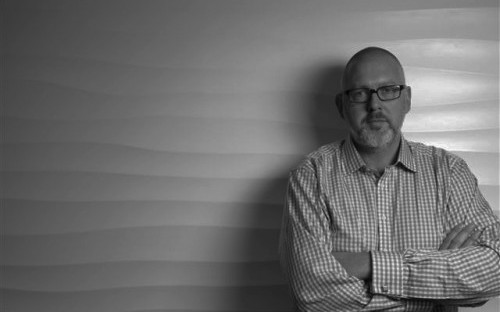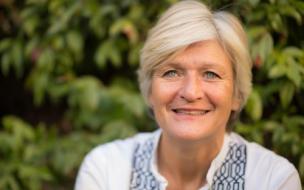Al, 44, holds a BA in Visual Communications from Liverpool John Moores University in the UK, an MA from the Royal College of Art, UK and has founded and managed design and communications agencies in London and Bristol over the last 20 years.
You’ve been on the One Planet MBA since September 2011. How have you plugged what you've learned about sustainability into your work at Open Communication Design?
My agency was built on an open’ culture: both in reference to our technical development, by utilising open source software platforms, and also from a philosophical standpoint, to literally try to make the digital world more human.
We're putting people at the centre of our thinking and making products and services that people want. Companies must now open a two-way dialogue, and engage in an ongoing conversation with their customers in order to meet their needs: consumers don't want your products and services in themselves, they want useful solutions to their needs.
The power of connectivity and the challenges of sustainability shouldn’t be something extraneous but rather something worked into the very fabric of what businesses do. Our work lives are pressured and have been geared towards the wrong priorities. Doing business and making a profit should demand activity that has meaningful social purpose.
What are some of the challenges that sustainable thinking has to face before it can attain significant results in mainstream business?
Communication. People don’t really understand the issue of sustainability. I think it's been communicated very badly in the past so it remains an unattractive and confusing alternative or concept to many people. To me, it’s about developing real social purpose, working smarter, being innovative and more focused on people, not products. We can do so much better than this!
Another issue is that the subject of sustainability within business just isn’t taught very well in traditional b-schools and this is a real shame because we can see that the old systems are clearly not working. Traditional b-school teaching still contains all the outdated reference points that don’t engage people who are interested in participating in change.
Digital media and technology is making things a lot more transparent and people can now use their voices to demand change. Social media and digital platforms allow people to form groups for collaboration and to share knowledge. I think businesses need to take these networks more seriously, learn how to engage external stakeholders, and become more adaptive and innovative ‘learning organisations’.
You’ve been working in the design and communications industry for over a decade. Why the decision to do an MBA and why the One Planet MBA?
My communication agency business grew and developed within the creative community of Bristol and was well respected, working mainly with large corporate clients such as SAP, Unilever, Specialized, Phillips and SITA. However when the opportunity arose with the creation of the new sustainability-focused ‘One Planet’ MBA course, I went for it although it was not an easy decision to make at this stage in my career.
I wanted time to develop my interests in the business of sustainability and to explore the possibilities for business to innovate for the better during such a period of great transformation.
I was at a point in my life when I was looking to align my professional skills with my ambition to help businesses think differently about the role they play in society and how they adapt in a more interconnected world.
Sustainability and business can feel like two very separate worlds, but I think combining a more creative or design-led approach to business can highlight some innovative and exciting potential opportunities.
My skills in social and digital communications, which may not be too abundant in most boardrooms, position me in an interesting space to be able to create genuine value for the collaborative and networked businesses of the future.
What are your Post MBA aspirations?
I’m sponsored by Sony Europe so I’ve been working with Sony and Forum for the Future on their Futurescapes project investigating and researching how technology can help us live more sustainably by 2025. I’m also becoming increasingly interested in the subject of Bio-mimicry and how using nature as a reference point can be applied to business eco-systems. We seem to have forgotten that 3.8 billion years of evolution is a very handy reference resource.
My post-MBA aspirations will be to utilise my experience and knowledge to continue to ask questions and help businesses strategically adapt and build a purpose for the future.
You can keep track of Al's progress through his LinkedIn profile or by following him on Twitter! You can also read more on the One Planet MBA on BusinessBecause.
Interested in tech jobs? Read our interview with the folks at Rocket Internet, Europe's biggest tech incubator
RECAPTHA :
9e
ec
29
b8







